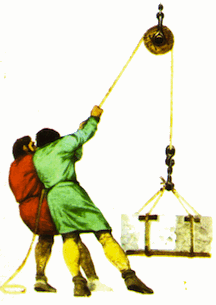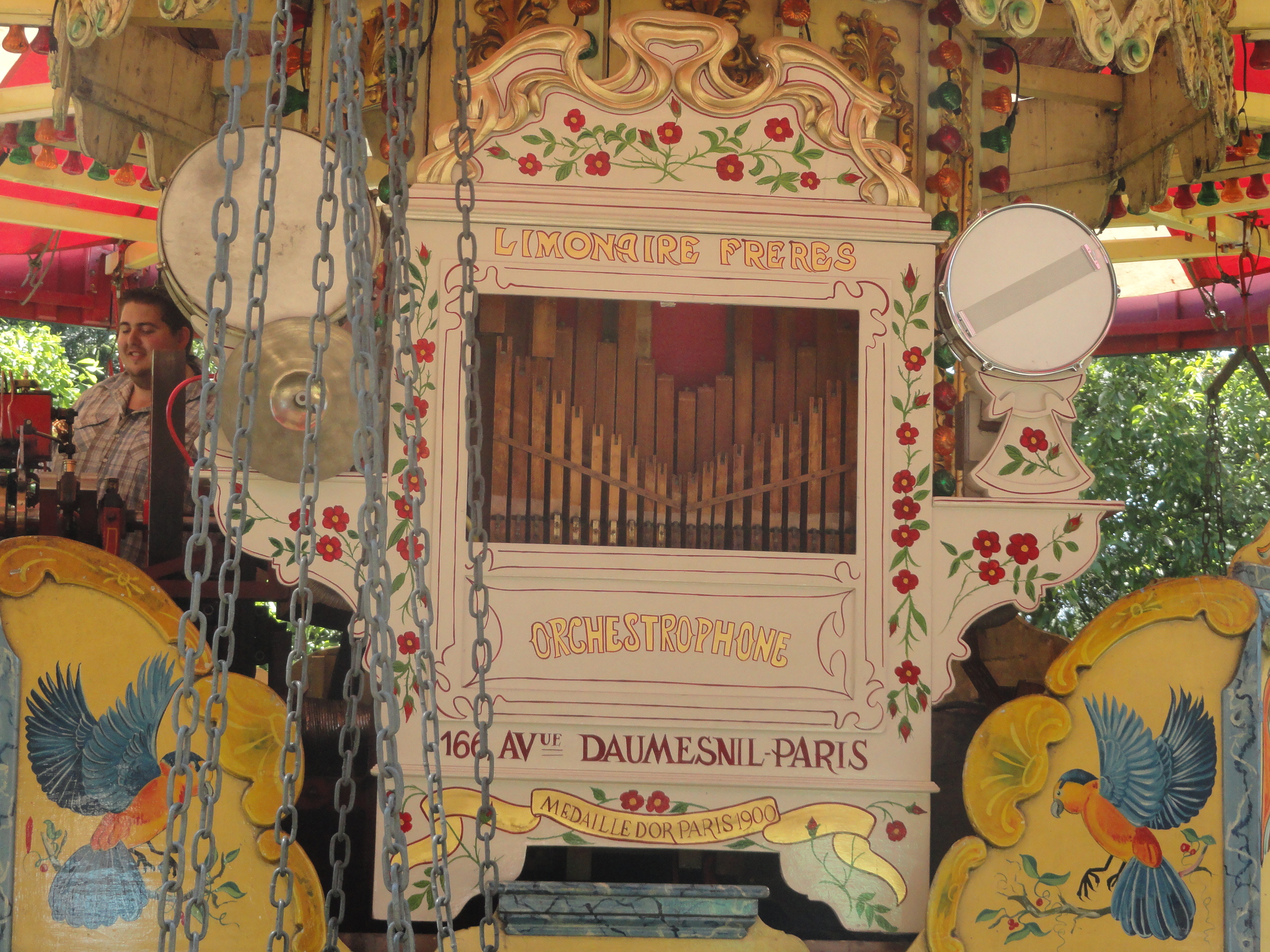 And months later, if asked to explain the principles of the Rotato, the kid who was left to make scientific discoveries on his own is much less likely to remember the one right answer than the kid who was instructed in the ways of the Rotato.
And months later, if asked to explain the principles of the Rotato, the kid who was left to make scientific discoveries on his own is much less likely to remember the one right answer than the kid who was instructed in the ways of the Rotato.
But it turns out, the article informs us, that Piaget was wrong. If a kid is handed, say, a Rotato, in science class and told to discover its principles and then write a paper about it, he is less likely to write something that makes sense than if he is lectured about the principles of the Rotato and shown how the Rotato works by a qualified Rotato operator.  And months later, if asked to explain the principles of the Rotato, the kid who was left to make scientific discoveries on his own is much less likely to remember the one right answer than the kid who was instructed in the ways of the Rotato.
And months later, if asked to explain the principles of the Rotato, the kid who was left to make scientific discoveries on his own is much less likely to remember the one right answer than the kid who was instructed in the ways of the Rotato.
So, the sender of the article thought I, as an unschooling parent, would be shocked to find out that all the teacherless learning my son has been doing all these years hasn't amounted to a pile of potato skins.
True, my kid is not a science wiz. He did not write a scientific paper about albino sparrows before he reached his teen aged years, but he did make a charming and anatomically accurate finger painting of a blue jay when he was five. I believe it is possible he might fail whatever science tests they require of people his age in school, but I think one important point here is this: He doesn't care whether he could pass a test, and he hasn't yet wanted to write a paper about sparrows, albino or otherwise. If he does not become America's next leading scientist, it will be because he's not interested in being a scientist. I suspect no amount of science classroom instruction would change that. And I think that might have been Piaget's point. A kid who's interested in something needs a lot of hands on experience and time to explore, and if a kid isn't interested, then no amount of instruction will turn him into a brilliant scientist.
Maybe in sixteen years they will conduct a follow up study that will show us what percentage of kids who had science instruction in school became scientists, versus the unguided discovery crowd. Maybe the small number of kids who were interested enough to really explore the ramps and marbles in the study will have gone on to pursue a career or hobby in the sciences. Maybe few kids from the instructed group will be interested in science. Maybe it all has less to do with the teachers than the kids.
The idea of unguided discovery in a school setting isn't anything like the kind of discoveries unschooling kids make. There is a difference between a teacher handing a kid a pulley and telling him to discover what it does and write a paper about it and a kid finding an interesting object and messing with it because it sparked his curiosity.  A lot of what my son has learned he's learned in a way that might be called unguided discovery, but it didn't look much like the model in the article, and it didn't happen in a vacuum.
A lot of what my son has learned he's learned in a way that might be called unguided discovery, but it didn't look much like the model in the article, and it didn't happen in a vacuum.
"Unguided," as it's used in the article, suggests that a kid with an interest or with questions would be left to figure out the answers on his own, and maybe that's how it really worked in the study group. Maybe some teachers in schools really require kids to explore an object of the teacher's choosing and don't make themselves available to answer questions or give explanations. While my own kid has logged hours of unguided discovery—playing with tools or toys as much as he wanted, satisfied with his own ideas about them—he has also had as much help and information as he liked on any topic. And when I didn't know the answers to his questions, I found someone who did know. He was never given an object with an expectation to "discover" its principles and come up with the one right answer for a teacher who would give him a grade. Many interesting people in his life have given him objects or ideas that inspired him to explore, but in all his exploration he's been free of the stress and pressure of the right answer and the passing grade. So if a thing was fascinating, he had the freedom to explore it, the help he wanted—if he wanted it—and the prerogative to leave it alone and move on without being a failure or a flunkey.
Piaget's ideas never really blossomed in the schools, not because they're bad ideas but because the system of schooling is flawed. A third or fourth grader who has some discovery time at school still knows he has no choice about being at school, still didn't get to choose the object of exploration, still has to come up with the only answer the teacher will accept, and will still have to stop his discovering when the teacher says it's time to move on to something else.
My son has experienced a lot of wonderful learning through discovery and knows how to find instruction if that's what he wants. I have a wild idea that doing what he wants to do is more important than doing what science educators would like him to do. I don't think all innovators and leaders have to come from the molded and stamped process that produced a previous innovator. I think new understanding often comes from fresh and fearless approaches to discovery. So, while some people are working to prove Piaget wrong, I think he had a good idea when he said, "If you want to be creative, stay in part a child, with the creativity and invention that characterizes children before they are deformed by adult society."
Deb Lewis lives a happy unschooling life in Montana with her husband David and son Dylan. She's a part time floral designer, potter, poet, gardener, trampoline bouncer, and bird watcher and a full time unashamed idealist.
I used the last paragraph of Deb's article for Just Add Light and Stir, in October 2011. I will repeat that part here, and share comments that are at that blog post.
Unguided Discovery "My son has experienced a lot of wonderful learning through discovery and knows how to find instruction if that's what he wants. I have a wild idea that doing what he wants to do is more important than doing what science educators would like him to do. I don't think all innovators and leaders have to come from the molded and stamped process that produced a previous innovator. I think new understanding often comes from fresh and fearless approaches to discovery. So, while some people are working to prove Piaget wrong, I think he had a good idea when he said, 'If you want to be creative, stay in part a child, with the creativity and invention that characterizes children before they are deformed by adult society.'" |
"Stay in part a child" sounds like a wonderful thing to aim for every day.And "Unguided Discovery"....This is a phrase I can use to describe how we homeschool to people who I think will misunderstand the term "unschooling."
Piaget and Bruner and others wrote a lot about Discovery Learning but it’s been criticized a lot, too. I think concerned friends and relatives might be just as worried or confused by “unguided discovery” or Discovery Learning as by “unschooling.” Especially if they care enough to do some research.Maybe Discovery Learning with Support? Supported Discovery? I don’t know. Guided Discovery is a term used a lot by educators and would be misleading for an unschooler to use.
And “unguided” can be a problem. Not every guide is a good guide that’s true, but a good guide when wanted or needed, can help learning and discovery. On a river float trip once, the guide said something like, “I won’t tell you to hold on all the time because I know you want to take pictures. But I will tell you that I’ve been on this river hundreds of time and it can still surprise me. I’ll tell you when it’s going to be rough but you’ll be safest if you stay aware.” A good guide will point out obstacles and opportunities, answer questions and tell you where it might get rough (and pull you out of the water if you forget to hold on!) I wouldn't have wanted to discover the class II rapids of the Kenai canyon without her. People who’d been through the canyon before wouldn’t have needed a guide there, but I think all kids deserve a good guide, rapids or no. 🙂
Maybe "discovery" is a good term to use without specifying how much guiding you intend, when talking to people who don't yet understand unschooling.


